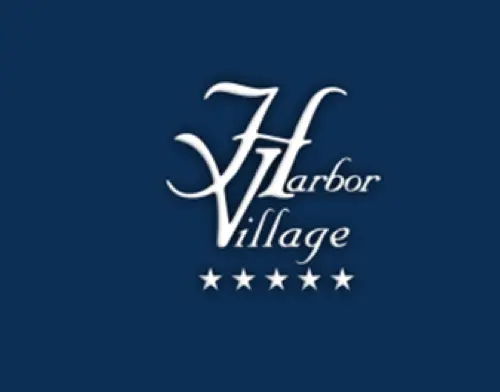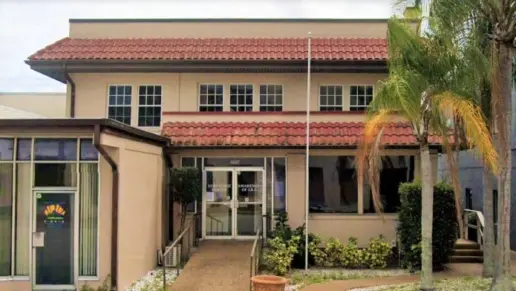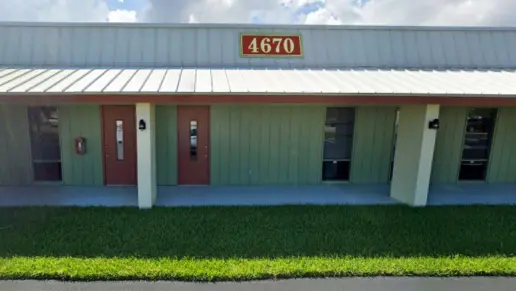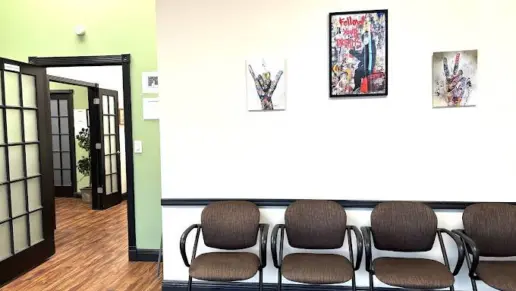One of the techs, Keith went above and beyond to ensure I had the most stress-free experience possible. When I was ill, he went out on his break to purchase Lysol for me to disinfect my room. Thank you, Keith.
About Harbor Village
Located off of I-95, Zinnia Health Miami is a treatment facility that provides addiction recovery services in Miami, Florida. It sits on a 30,000-square-foot property, giving you ample space and privacy to focus on healing. Here, they treat individuals struggling with substance use and co-occurring disorders. The services available include safe medical detox, inpatient residential treatment and outpatient therapy. Specialized programs are also available for members of the LGBTQ+ community.
When you call one of their treatment specialists, they’ll gather information about you, answer your questions, set up an intake assessment and begin your treatment at the facility.
Some of the onsite amenities available to you in the residential program are semi-private rooms, basketball and volleyball courts and an on-site chef to prepare healthy meals. The primary treatment methods you’ll be receiving are medication-assisted treatment (MAT) and relapse prevention training. Nurses will provide 24-hour care as you’re administered medication to reduce your withdrawal symptoms. As you make progress, you’ll participate in individual and group counseling. The short residential program can last up to 90 days and the long term program can last up to a year.
One thing I like about this facility is that they offer alternative treatments such as art and music therapy to help you recover. Music therapy is led by an instructor who guides you into activities such as creating and listening to music, singing, or discussing lyrics. Through this form of therapy, you’ll learn tools to recognize and manage your triggers.
Art therapy can be effective by providing emotional healing and helping clients develop self worth. Clients can learn to use art as a new outlet to release their emotions instead of turning to substances. Art can be one of the things you do while you enjoy the relaxing sounds of the ocean on one of Miami’s many beaches. When you’re near the completion of your treatment program, the post-treatment services available to you include sober housing and alumni support.
Latest Reviews
Rehab Score
Gallery
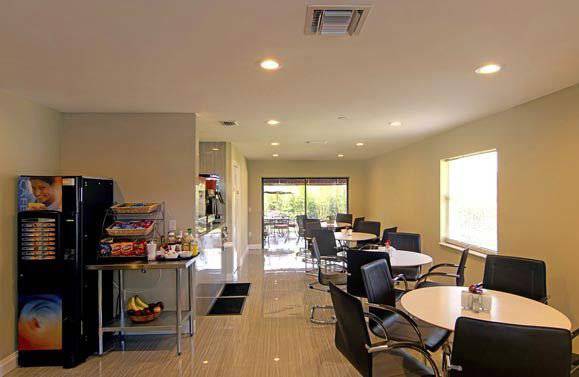
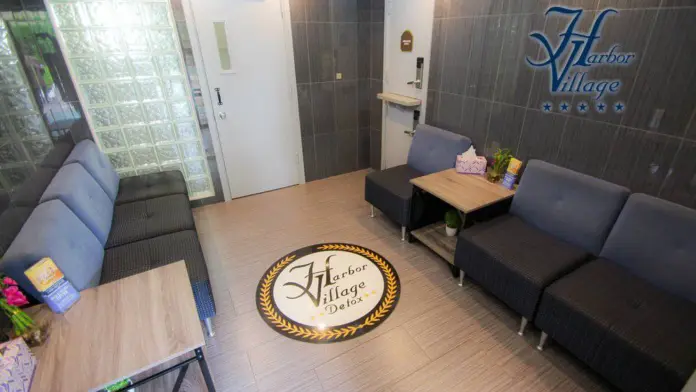

Location
Accepted Insurance
Other Forms of Payment
Private insurance refers to any kind of healthcare coverage that isn't from the state or federal government. This includes individual and family plans offered by an employer or purchased from the Insurance Marketplace. Every plan will have different requirements and out of pocket costs so be sure to get the full details before you start treatment.
Self-pay involves paying for treatment out of your own pocket. You can use savings or credit, get a personal loan, or receive help from family and friends to fund your treatment. If you don't have insurance or your insurance plan doesn't cover a specific program, self-pay can help ensure you still get the care you need.
Financial aid can take many forms. Centers may have grants or scholarships available to clients who meet eligibility requirements. Programs that receive SAMHSA grants may have financial aid available for those who need treatment as well. Grants and scholarships can help you pai for treatment without having to repay.
Medicaid is a state based program that helps lower-income individuals and families pay for healthcare. Medicaid covers addiction treatment so those enrolled can use their coverage to pay for rehab. When a program accepts Medicaid the client often pays very little or nothing out of their own pocket.
Medicare is a federal program that provides health insurance for those 65 and older. It also serves people under 65 with chronic and disabling health challenges. To use Medicare for addiction treatment you need to find a program that accepts Medicare and is in network with your plan. Out of pocket costs and preauthorization requirements vary, so always check with your provider.
Military members, veterans, and eligible dependents have access to specific insurance programs that help them get the care they need. TRICARE and VA insurance can help you access low cost or no cost addiction and mental health treatment. Programs that accept military insurance often have targeted treatment focused on the unique challenges military members, veterans, and their families face.
Addiction Treatments
Levels of Care
Treatments
The goal of treatment for alcoholism is abstinence. Those with poor social support, poor motivation, or psychiatric disorders tend to relapse within a few years of treatment. For these people, success is measured by longer periods of abstinence, reduced use of alcohol, better health, and improved social functioning. Recovery and Maintenance are usually based on 12 step programs and AA meetings.
Drug rehab in Florida provides quality treatment to help individuals overcome dependency related to a wide range of addictive substances. Programs address both the physical and mental aspects of addiction in order to help you make a full recovery.
Many of those suffering from addiction also suffer from mental or emotional illnesses like schizophrenia, bipolar disorder, depression, or anxiety disorders. Rehab and other substance abuse facilities treating those with a dual diagnosis or co-occurring disorder administer psychiatric treatment to address the person's mental health issue in addition to drug and alcohol rehabilitation.
A combined mental health and substance abuse rehab has the staff and resources available to handle individuals with both mental health and substance abuse issues. It can be challenging to determine where a specific symptom stems from (a mental health issue or an issue related to substance abuse), so mental health and substance abuse professionals are helpful in detangling symptoms and keeping treatment on track.
Opioid rehabs specialize in supporting those recovering from opioid addiction. They treat those suffering from addiction to illegal opioids like heroin, as well as prescription drugs like oxycodone. These centers typically combine both physical as well as mental and emotional support to help stop addiction. Physical support often includes medical detox and subsequent medical support (including medication), and mental support includes in-depth therapy to address the underlying causes of addiction.
Programs



Clinical Services
Research clearly demonstrates that recovery is far more successful and sustainable when loved ones like family members participate in rehab and substance abuse treatment. Genetic factors may be at play when it comes to drug and alcohol addiction, as well as mental health issues. Family dynamics often play a critical role in addiction triggers, and if properly educated, family members can be a strong source of support when it comes to rehabilitation.
Therapists who apply cognitive behavioral therapy in Florida believe patient thoughts and behaviors are closely linked. They use this treatment method to help clients change their thought patterns so they can also change behaviors and break free from substance abuse.
Types of creative arts therapy in Florida include playing music, writing poetry, journaling, dancing, painting, and sculpting. These expressive activities can help you process emotions and work through challenges with the guidance of a creative arts therapist.
By incorporating a fitness therapy program into drug and alcohol addiction recovery in Florida, you experience the benefits of regular physical activity on your physical and mental health. Exercise helps you manage stress, improves your mood, and reduces anxiety. It promotes better sleep and provides a healthy outlet for coping with cravings.
Group therapy is any therapeutic work that happens in a group (not one-on-one). There are a number of different group therapy modalities, including support groups, experiential therapy, psycho-education, and more. Group therapy involves treatment as well as processing interaction between group members.
Amenities
-
Yoga Studio
-
Wifi
-
Private Transportation
-
Spa
-
Private Rooms
-
Gym
Staff & Accreditations
Staff

CEO

VP & Medical Director
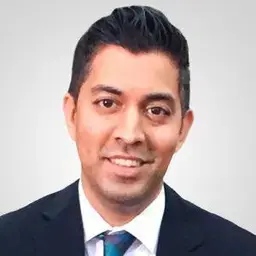
CFO
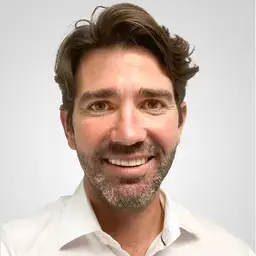
VP, Admissions & Real Estate

Chief People Officer and SVP of Operational Excellence
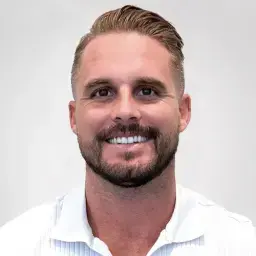
VP of Change Management
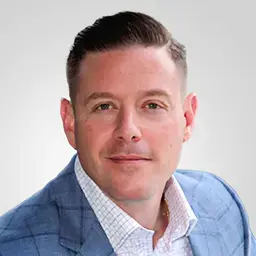
Regional Executive Director of California Facilities
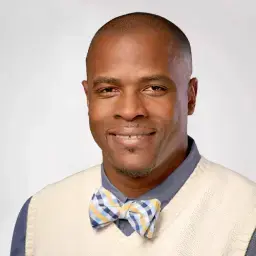
Executive Director, Florida
Accreditations

LegitScript has reviewed Harbor Village as part of their certification program, and has determined that it meets the LegitScript standards for legality, safety and transparency.
LegitScript verified in
Contact Information
9198 NW 8th Avenue
Miami FL, 33150
